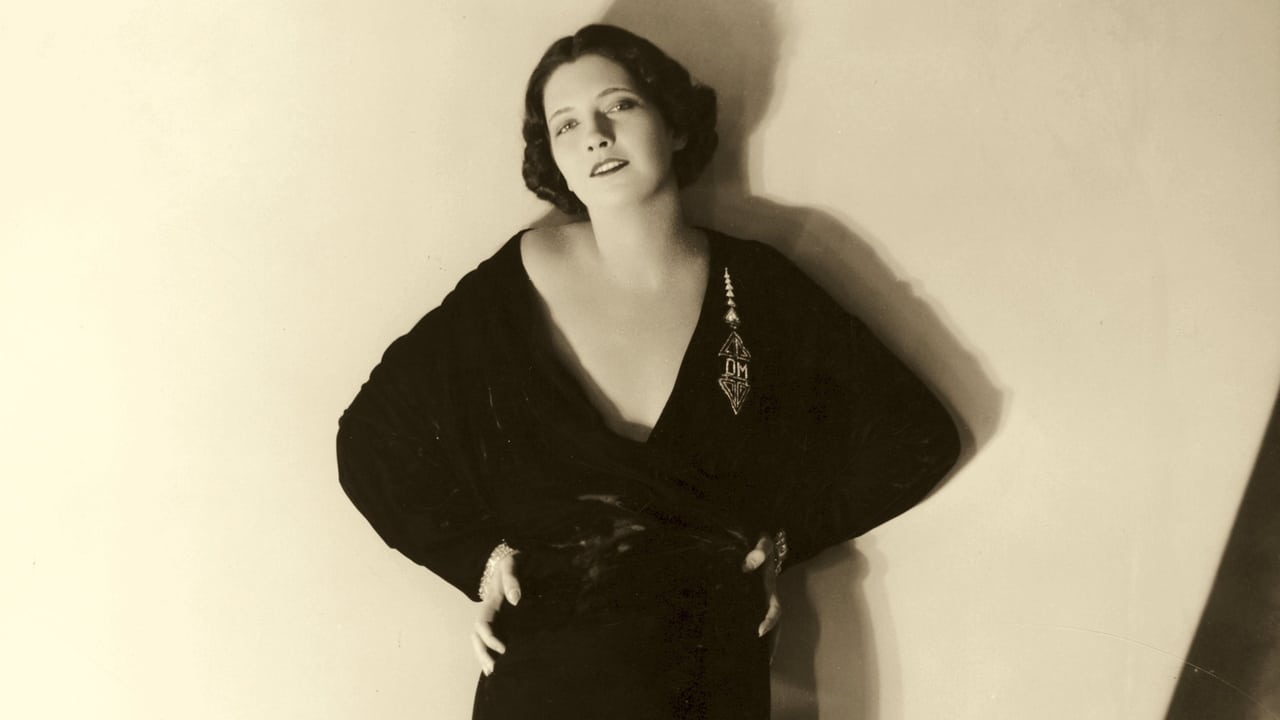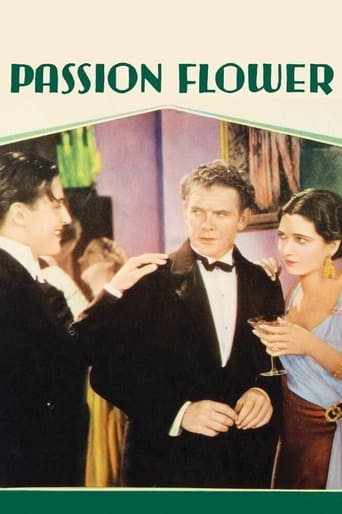GarnettTeenage
The film was still a fun one that will make you laugh and have you leaving the theater feeling like you just stole something valuable and got away with it.
Stephanie
There is, somehow, an interesting story here, as well as some good acting. There are also some good scenes
Edwin
The storyline feels a little thin and moth-eaten in parts but this sequel is plenty of fun.
mark.waltz
"Love is a rare thing. You throw it away, it may never come again." So says Kay Francis to her favorite cousin (Kay Johnson), a sweet, rich girl who has fallen in love with chauffeur Charles Bickford and plans to marry him against the wishes of her obstinate father (Winter Hall) who threatens to disown her. Bickford and Johnson marry, and move into an apartment building owned by the frenetic Zasu Pitts who always has a word of doom every time she stops into visit. Francis is married to the older Lewis Stone who allows her to have affairs but steps in when they get too intense. At first, Francis is her cousin's confidante, but as the marriage between Bickford and Johnson begins to suffer, Bickford confides to Francis whom he found at first to be pretentious and snobby. In the meantime, Johnson struggles to raise their child (Dickie Moore) while Bickford plays around with Francis. Eventually guilt takes over the two, and Francis begs Johnson to forgive her even as she plans to marry Bickford who has convinced Johnson to divorce him. But will a final meeting between Bickford, Johnson and Moore bring him to his senses about what he really wants? Not if Francis gets her way!This pre-code drama shows its vixen (Francis) in a rather sympathetic light as the affair between her and Bickford doesn't simply happen out of nowhere and her devotion to her cousin brings on a reluctance to go forward with it. Of course, once she's involved, she's not willing to let go, and a confrontation between her and husband Stone (seen only briefly) makes her determination all the more to get Bickford down the aisle. Bickford, on his part, is obviously not content to become Francis's "fancy man", being much more independent and masculine than the stuffy members of Francis's social scene. Johnson never makes her plight turn her into a sob sister, being more intent on remaining strong for her son (an excellent Dickie Moore) and doing what she needs to do to survive. Of course, Pitts steals every scene she is in, whether talking about a spouse that ran off on her, a tenant who can't speak anymore because they are dead, or the little boy who lived in the building who was killed after being hit by a car. Only Pitts could deliver such tragic news and make the viewer laugh because of her dead-pan manner. This is one "Debbie Downer" type character that is actually amusing.
medwardb1976
I may be a nerd about history, but I have always wondered just how long it took for the jazz age of the '20's to wind down, and for the reality of the oncoming depression to settle in on the minds of the average American. A lot of the movies dated as of the year 1930 that I have seen on TCM have plots and situations that look as though the depression hasn't started yet. In some cases it seems like it's still the 1920's! And I am not talking musicals, either. In this movie, released December 6, 1930, the plot involves the depression, in the fact that Charles Bickford decides to accept Kay Francis' offer to work on her ranch because he has lost his job. Meanwhile, Kay Johnson (the wife) and her landlady played by Zasu Pitts seem to be just waking up to it all as they discuss the state of the economy. Kay says how it has been "dreadful this year." And Zasu Pitts says, "Oh it's bad. I've been trying to collect rent and haven't had much luck." Later when Charles Bickford loses his job his boss tells him, "I may not have a job myself in a couple of weeks." So, perhaps in January 1930 no one noticed a depression yet, but by December 1930, everyone did. This is what I find interesting. Call me a nerd.
MartinHafer
I happened to see this and three other Kay Francis films recently when they were shown on TCM. And, surprisingly, all four films were about adultery and three of them had Kay playing a horrid skank! So, when I saw her appear on the screen, I just KNEW she was no good!!! This sort of type-casting must have been what killed Ms. Francis' career--that and the more restrictive and less sleazy style of films that were mandated by the new Production Code in 1934.In this film at least, Kay does not play an obvious adultress. In fact, she isn't a major player in the first half of the film--which was by far the best portion of this movie. Kay Johnson plays a rich woman who marries her chauffeur (Charles Bickford). Her father disowns her because of this and the first portion is all about this nice couple struggling to barely get by.Unfortunately, after five years of marriage and struggle, they agree to move into a wonderful ranch owned by Kay Francis and her husband (Lewis Stone). This is because although the marriage of Bickford and Johnson seemed loving and good, Ms. Francis began making overtures towards Bickford and he eventually gets him to leave his family. It was interesting to see how a seemingly decent man could make a series of bad choices that made the affair seem almost inevitable, though this also undid so much of the rest of the film--and this was irritating to me. I really wish the film hadn't gone this direction or that the basic selfishness of Bickford had been more apparent sooner--I'd invested a lot in the family and this disruption just didn't ring true. If Bickford really was the nice guy with integrity we'd come to like and respect, then why this change?!FYI--Late in the film, look for a young and easy to miss Ray Milland as a guest at the party. It's obvious this is early in his career and it's just a bit part. Also, keep an eye on Zasu Pitts in the film--she's hilarious as the most glum and depressing supporting character I have seen in years!!
cadyb
Cecil's brother, William DeMille only directed one film after this one. After seeing Passion Flower, it's a wonder they let him do that one. Extremely old fashioned material made with no verve. With the exception of some lame Zasu Pitts comedy, all the performances are wooden and trite, even the usually interesting Bickford and Francis. The only moment of interest is a technical where Bickford and Francis have a discussion on a very windy hillside and the sound appears to be recorded on site. It would difficult with modern microphones, much less what they had in 1930. But it's not enough to make anyone want to sit through this rubbish.

